 | | | “Those who dwell, as scientists or laymen, among the beauties and mysteries of the Earth are never alone or weary of life.”
—Rachel Carson | | | | | | May arrives like the final page of a chapter, heavy with reflection, edged with resolve. Across the country, students submit final papers, and faculty grade through fatigue, even as a storm of attacks on academic institutions swells outside the classroom walls. In a season that should be marked by caps, gowns, and renewal, American higher education finds itself fighting for its very soul. 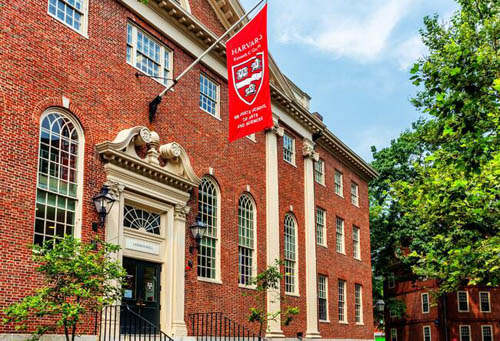 This month alone, the assaults have intensified: Harvard stripped of its ability to host international students. Entire departments threatened with dismantling. A federal judge blocking the executive order to dissolve the Department of Education—but only after 1,300 staff had already been let go. Faculty hold vigils. Students protest. Institutions brace for impact. These attacks are not just political, they are existential. They target the very spaces where ideas blossom, where science takes root, and where climate justice has a fighting chance to grow. This month alone, the assaults have intensified: Harvard stripped of its ability to host international students. Entire departments threatened with dismantling. A federal judge blocking the executive order to dissolve the Department of Education—but only after 1,300 staff had already been let go. Faculty hold vigils. Students protest. Institutions brace for impact. These attacks are not just political, they are existential. They target the very spaces where ideas blossom, where science takes root, and where climate justice has a fighting chance to grow.
And yet, even now, there is resilience.  From new solar fields in Colorado to community-led gardening as a form of Black reclamation in Durham, from students in Kentucky planting trees to protect their futures to faculty in San Diego researching invisible legacies of DDT, this May is more than a month of endings but also a declaration that the work continues. From new solar fields in Colorado to community-led gardening as a form of Black reclamation in Durham, from students in Kentucky planting trees to protect their futures to faculty in San Diego researching invisible legacies of DDT, this May is more than a month of endings but also a declaration that the work continues.
At the Rachel Carson Council, we hold fast to the belief that every campus is both sanctuary and seedbed. We celebrate our fellows, our faculty, and every student whose education has been shaped by justice, care, and the courage to imagine something better. This year has tested us. But still, we rise—greener, wiser, and more resolved than ever to build a future where knowledge is protected, freedom is upheld, and climate justice is a lived reality. 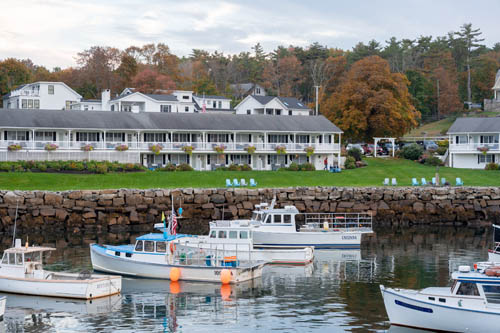 In this month’s RCC Fellows Speak Out, our contributors illuminate the path from crisis to action. Jeremy Sabol reflects on the need to cultivate “green courage” in a time of deep uncertainty. MacEva Wright explores the intersection of science, community, and place. Ewan Dignon examines the lasting damage the Trump Administration inflicted on American fisheries. From the steel ports of Belgium, Lawrence Wu analyzes Europe’s decarbonization efforts and the lessons they offer for U.S. climate policy. Ludlow Morris highlights how the United Kingdom’s integration of rewilding into national policy could inspire similar action in Congress. And in Durham, Mary Mulualem shares how a collective of feminist birders is safeguarding ecosystems one park at a time. In this month’s RCC Fellows Speak Out, our contributors illuminate the path from crisis to action. Jeremy Sabol reflects on the need to cultivate “green courage” in a time of deep uncertainty. MacEva Wright explores the intersection of science, community, and place. Ewan Dignon examines the lasting damage the Trump Administration inflicted on American fisheries. From the steel ports of Belgium, Lawrence Wu analyzes Europe’s decarbonization efforts and the lessons they offer for U.S. climate policy. Ludlow Morris highlights how the United Kingdom’s integration of rewilding into national policy could inspire similar action in Congress. And in Durham, Mary Mulualem shares how a collective of feminist birders is safeguarding ecosystems one park at a time. In our RCC Campus Teaching Spotlight section, faculty at Yale University use science fiction—and its climate-focused cousin, “cli-fi”—to expand how students imagine the future. Through courses that question the dominance of dystopia in popular culture, Yale professors are encouraging students to envision climate futures rooted not only in catastrophe, but in resilience, justice, and possibility. In our Politics and Higher Education section, we bring awareness to a wave of legislative proposals shaping the future of academia. Senator Bernie Sanders and Representative Pramila Jayapal have introduced the College for All Act, which would make public colleges tuition-free for 95% of American students and guarantee free community college for all. Meanwhile, a bipartisan bill, the RESEARCHER Act, seeks to address financial insecurity among early-career STEM scholars by requiring federal agencies to support equitable research careers. At the same time, a new House-backed reconciliation bill threatens to raise endowment taxes, cut student aid, and shift loan burdens onto colleges, deepening existing inequities at a critical moment for higher education. 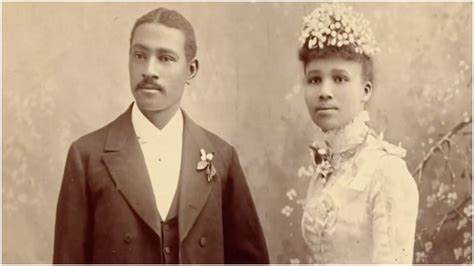 In our Roots of Resistance section, we honor the legacy of Willa and Charles Bruce, who in the early 1900s transformed two plots of land in Manhattan Beach, California, into Bruce’s Beach—a rare sanctuary for Black families barred from segregated coastlines. Their vision was radical: a place where Black joy, rest, and community could thrive beside the sea. Though the city eventually seized the land through racist eminent domain, Bruce’s Beach endures as a powerful symbol of resistance, reclamation, and the ongoing fight for environmental and racial justice. In our Roots of Resistance section, we honor the legacy of Willa and Charles Bruce, who in the early 1900s transformed two plots of land in Manhattan Beach, California, into Bruce’s Beach—a rare sanctuary for Black families barred from segregated coastlines. Their vision was radical: a place where Black joy, rest, and community could thrive beside the sea. Though the city eventually seized the land through racist eminent domain, Bruce’s Beach endures as a powerful symbol of resistance, reclamation, and the ongoing fight for environmental and racial justice. And in our Books section, we spotlight Juice by acclaimed Australian author Tim Winton. This is a haunting, lyrical novel of climate collapse and personal resistance. Set in a scorched future where solar rigs drift through ash-covered ruins, Juice follows a man and a girl captured and imprisoned in a desert mineshaft. As the man recounts his past, the story unfolds into a fierce meditation on survival, silence, and ecological reckoning. As we close out a turbulent academic year, let us remember that even in the face of attacks, our campuses remain fertile ground for change. Every act of teaching, organizing, and imagining plants a seed. And from those seeds resistance, renewal, and a just future will grow. Stay informed. Stay engaged. And join us in amplifying these powerful stories from campuses nationwide. | | | | | | 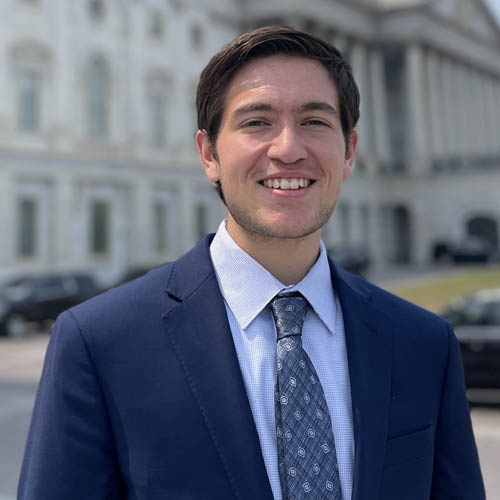 Diego Tovar — Director of Campus and Civic Engagement Diego Tovar — Director of Campus and Civic Engagement
Diego Tovar, Director of Campus and Civic Engagement, holds his master’s in Global Environmental Policy from American University and an undergraduate degree as a Udall Scholar in Ecosystem Science and Sustainability with a minor in Political Communication from Colorado State University. Diego has worked for the White House Council on Environmental Quality, the Environmental Protection Agency, the U.S. House of Representatives, and the Navajo Nation Washington Office focusing on climate justice and climate adaptation. | | | | | | Duke University Offers Buyouts and Signals Future Layoffs as Federal Cuts Hit Policy changes under the Trump administration could amount to hundreds of millions of dollars in funding losses for the institution. Historically, much of Duke’s research enterprise has been devoted to work on behalf of the government. Federal grant support made up nearly three-quarters of the $1.5 billion in sponsored research funds that Duke received in fiscal 2024, much of it going toward health science. | | | | | | | | New Partnership to Build Solar Array Boosts Progress Toward CSU’s Sustainability Goals Colorado State University and Pivot Energy, a leading national renewable energy independent power producer, have announced a 20-year partnership to develop a new solar energy project that significantly advances progress toward CSU’s sustainability goals. Through the partnership, Pivot Energy will build a ground-mounted solar project in Weld County, Colorado. | | | | | | | | WVU Unveils Sustainability Goals Designed to Reduce Waste and Emissions, Protect Land and Water West Virginia University is committing to a comprehensive set of 20-plus sustainability goals, outlining a road map for significant environmental improvements across campus by 2035. Announced as part of Earth Week at WVU, the initiatives — spanning categories of waste reduction, land and water protection, and lower emissions — reflect the University’s commitment to a more environmentally friendly future. | | | | | | | | So Much More Than Growing Plants: Gardening as a Practice of Reclamation, Identity and Legacy “The Garden is a healer… that’s just a fact.”
“When people come into my garden they see me.”
“The people in charge are not the ones that look like us.” These were just a few of the powerful truths shared during the African American Legacy in Gardening and Horticulture Symposium on Saturday, March 29. In a space filled with stories, resistance and regeneration, I witnessed how gardening is much more than cultivation. | | | | | | | | Solar Field Installations Begin at the Site of the Sharon and Graham Mitchell Sustainability Park Preparation for Miami University’s two ground mount solar photovoltaic (PV) installations begins this week. The solar fields will be part of the Sharon and Graham Mitchell Sustainability Park, made possible by a $5 million principal gift from longtime Miami and sustainability supporters, Sharon Janosik Mitchell ’73 and Graham Mitchell ’73, M.En. ’76. | | | | | | | | Making a ‘tangible difference in people’s lives’ When Clark’s Department of Sustainability and Social Justice — a revisioning of the International Development, Community, and Environment program — launched in 2023, faculty wanted to ensure that students across all five master’s programs had the opportunity to learn from each other. In transforming the department’s curriculum, faculty purposefully developed a new, common seminar that is required for graduate students. | | | | | | | | Learning Beyond the Classroom: U Kentucky Students Turn Sustainability Lessons Into Action The spirit of sustainability was alive and well on campus as part of the University of Kentucky community rolled up their sleeves to plant trees and contribute to a greener future. For the second year in a row, students from Lewis Honors College, along with the UK Grounds arboriculture team in Facilities Management, joined forces to plant trees along Alumni Drive. | | | | | | | | | | Can Science Fiction Help Us Envision a Better Future? Science fiction allows artists to speculate about the future through imaginative and technical concepts. But so often the prevailing vision of that future in popular culture tends toward the dystopian — including themes of environmental catastrophe, societal inequity, and technological domination. So why is it that so many writers of science fiction (sci-fi), or, for that matter, the emerging genre known as “cli-fi” (climate fiction), inhabit realities that no one wants to live in? | | | | | | | | Sustainability Fund Grants Award $199,000 to 14 Campus Projects Fourteen sustainability projects have been awarded a combined $199,000 through the NC State Sustainability Fund. These projects, set to be implemented during the 2025-2026 academic year, aim to create meaningful impact for students and advance the university’s sustainability goals. Generated by a $2.50 per semester student fee, the Sustainability Fund supports innovative ideas from across the NC State community. | | | | | | | | Faculty Hold Vigils for International Students Detained by Federal Government Faculty and staff members from multiple universities gathered early this week in silent protest against the detention of three international students by the Department of Homeland Security, vowing to continue weekly vigils until all detainees are released. Simultaneous demonstrations were held at Georgetown and Tufts, with faculty at Boston University also organizing a solidarity vigil. | | | | | | | | Federal Judge Blocks Trump's Executive Order to Close Education Department A federal judge in Massachusetts has issued a preliminary injunction halting President Donald Trump's executive order to dismantle the U.S. Department of Education, dealing a significant blow to the administration's efforts to eliminate the federal agency. District Court Judge Myong J. Joun on last Thursday blocked Trump and Education Secretary Linda McMahon from carrying out the executive order and ordered the administration to reinstate approximately 1,300 Education Department employees who were terminated in March as part of a sweeping reduction-in-force. | | | | | | | | Trump Administration Cuts Off Harvard University From Future Research Grant Funding The institution “should no longer seek GRANTS from the federal government, since none will be provided,” U.S. Education Secretary Linda McMahon wrote. The Trump administration said it will cut off all future federal research grant funding to Harvard University, escalating government threats against the Ivy League institution after it rebuffed a sweeping set of federal demands seeking ideological changes to its programs and hiring. | | | | | | | | Trump Administration Strips Harvard’s SEVIS Certification The government escalates its war with the university by withdrawing permission to host international students, who make up more than one-fourth of the head count. Amid an ongoing legal showdown with Harvard University, the Trump administration has carried through on a recent threat to halt the private institution’s ability to host international students. The move was first reported Thursday afternoon by The New York Times, then subsequently announced on social media by secretary of the homeland security Kristi Noem. | | | | | | | | Judge Blocks Trump Effort to Bar International Students at Harvard Harvard sued and asked for a restraining order less than 24 hours after the Trump administration had said it would block current and future international students from attending the university. A federal judge halted on Friday the Trump administration’s attempts to block international students from attending Harvard University, the nation’s oldest university and one of its most prestigious. | | | | | | | | Arizona Governor Signs Bill Banning Campus Encampments Amid National Protests In a move that has sparked intense debate across higher education circles, Arizona Governor Katie Hobbs signed House Bill 2880 into law, explicitly prohibiting encampments on university and community college campuses throughout the state. The new law, which amends Arizona's existing statutes on free expression at higher education institutions, specifically targets temporary shelters—including tents—installed on campuses for overnight stays or "prolonged periods of time." | | | | | | | | Harvard Wins Injunction to Protect International Students Less than a day after having its ability to host international students revoked by the federal government, Harvard University successfully sued the Trump administration to block the move. A judge granted a temporary restraining order late Friday morning. Department of Homeland Security Secretary Kristi Noem announced Thursday afternoon that the Trump administration had stripped Harvard’s Student and Exchange Visitor Program certification in a letter that vaguely accused Harvard of a “failure to adhere to the law.” | | | | | | | | Sanders, Jayapal Introduce New "College for All Act" to Eliminate Tuition for Most Students Sen. Bernie Sanders (I-Vt.) and Rep. Pramila Jayapal (D-Wash.) introduced legislation Wednesday that would make public colleges and universities tuition-free for approximately 95% of American students, in what supporters call the most significant higher education investment in six decades. The College for All Act would eliminate tuition for students from households earning up to $150,000 annually for single households and up to $300,000 for married households. | | | | | | | | Senators Introduce Bipartisan Bill to Address Financial Insecurity Among STEM Researchers Senators Alex Padilla (D-Calif.) and Jerry Moran (R-Kan.) unveiled bipartisan legislation Wednesday aimed at tackling the growing financial crisis facing graduate and postdoctoral researchers in STEM fields. The Relieving Economic Strain to Enhance American Resilience & Competitiveness in Higher Education & Research (RESEARCHER) Act would require federal research agencies to implement policies addressing financial instability among these early-career scientists. | | | | | | | | The Reconciliation Bill Cleared the House. Here’s How it Would Change Higher Ed. House Republicans on Thursday narrowly passed a massive tax and spending bill that, if signed into law, would add new financial pressures on U.S. colleges and students while extending the tax cuts instituted in 2017. Backed by President Donald Trump and dubbed the “One Big Beautiful Bill Act,” the proposal includes provisions for dramatically increasing the endowment tax, a risk-sharing policy that would put colleges on the hook for unpaid student loans. | | | | | | | | Bruce’s Beach: A Stolen Shoreline In 1912 and1920, Willa and Charles Bruce purchased two oceanfront plots in Manhattan Beach, California, transforming them into a rare oasis for Black families barred from white beaches. At a time when racial boundaries were rigidly enforced, Mrs. Bruce’s vision was radical: to create a place where Black joy could thrive along the Pacific shore. They built a café, added changing rooms, and hosted dances. The waves shimmered just beyond their doors. Black families from across Los Angeles came to swim and belong in community. | | | | | | | | Trump Is Fishing for Trouble It is early morning in Rockport, Massachusetts. The first people have begun to arrive at the harbor. Their Downeast-style boats wait patiently in slips to be expertly piloted out to sea, not to return for weeks. The grizzled fishermen are used to this life. Year in and year out they embark on the same journeys their fathers and their fathers’ fathers did in generations past. They have plotted their course carefully and are on the hunt for bluefin tuna. The government has regulated the population diligently, and fishermen are sure to abide by the strict policies. Overfishing in the past has decimated their industry and forced them out of town. | | | | | | | | Where Marsh Meets My Purpose In the spring of 2021, I found myself boarding a ferry bound for Sapelo Island, Georgia––a barrier island nestled quietly along the state’s coast, wrapped in salty air and mystery. I was a junior at the University of North Georgia and a newly inducted member of the McNair Scholars Program who had not yet found her footing in the natural world. At that time, I knew that I wanted to be positioned in the environment field, but I wasn’t sure how I’d fit in. Unknown to me, this trip—sanctioned by my marine biology professor and mentor, Dr. Dalman—would become a turning point in how I understood science, community, and my place in both. | | | | | | | | Renewing Wonder: A Trip to Kruger There is nothing quite like being outside and immersing yourself in nature. It’s so important that the circle of environmentalist friends I live with at Duke University talk about it all the time. So much so that my best friend coined the term “nature hygiene,” highlighting how important it is to be renewed in nature and remind ourselves why we do the work we do. At spring break, through my Ecological Diversity & Climate Change class, I had a once-in-a-lifetime opportunity to travel to a truly diverse environment - Kruger National Park in South Africa which, at 7523 square miles, is slightly larger than New Jersey. | | | | | | | | Green Courage: Maintaining Hope in the Crisis of Our Lifetime “The world is dying.” “We’ve reached a point of no return.” “We’re all going to be living on a hell-like planet soon.” These are sentiments increasingly thrown around in conversations. As I journey through my mid-20s, I more frequently envision the world my future children will inherit. These conversations of doomsayers infiltrate my thoughts, stirring fear. | | | | | | | | Steel, Sea, and Smoke: Reflections from Antwerp It was early morning at the port, a light mist hanging over the water. I stood watching the container ship Stockholm Eagle idling at the terminal, its engine humming softly in the background. A crane lifted stacks of hot-rolled coils and galvanized steel, heaving them into the ship’s cavernous, crimson hull. Last summer, I worked in Belgium with an international steel finance group, doing research on the green steel transition and various regulations aimed at decarbonizing the steel industry. | | | | | | | | From Pasture to Profit: A Rewilding Revolution Beads of sweat blur my vision as I drag a vital water trough uphill to Wild Finca’s small yet irreplaceable herd of Asturcón horses. My legs are scratched raw from the overgrown brambles and nettles–likely triggered by the previous owner’s excessive use of fertilizer, but the sensation is dwarfed by the strain of dragging the heavy load. I finally get the basin in place, and the herd drinks ravenously. As I stand appreciating these majestic creatures, I realize the essential role they play as part of this newly-rewilded ecosystem. | | | | | | | | Feminist Bird Watchers Are Saving Ecosystems One Park at a Time On a January morning cold enough to see your breath when you exhale, I trekked down a gravel path surrounded by trees with the Durham Feminist Bird Club at Durham’s Lake Betz. The club’s leader appeared, offering me a pair of binoculars. The glossy black eye cups had been considerably damaged through years of use and being packed and unpacked for his birding outings. Someone gasped, and the 20 or so attendees whipped their heads towards the sound. | | | | | | | | | (Picador, October 17th, 2024) 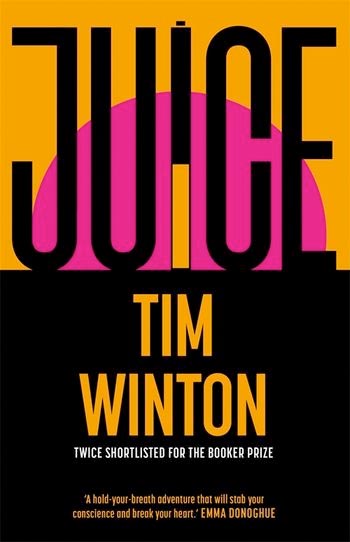 In Juice, acclaimed Australian author Tim Winton delivers a haunting vision of climate collapse through the lens of personal resistance and raw storytelling. Set in a scorched future where solar-powered rigs drift through the ash-laced remnants of civilization, Winton’s narrative follows a man and a girl as they navigate both desolate terrain and moral reckoning. When they are captured and imprisoned in a shadowy desert mineshaft, the man begins to tell his story, equal parts confession, eulogy, and indictment. In Juice, acclaimed Australian author Tim Winton delivers a haunting vision of climate collapse through the lens of personal resistance and raw storytelling. Set in a scorched future where solar-powered rigs drift through the ash-laced remnants of civilization, Winton’s narrative follows a man and a girl as they navigate both desolate terrain and moral reckoning. When they are captured and imprisoned in a shadowy desert mineshaft, the man begins to tell his story, equal parts confession, eulogy, and indictment.
What begins as a tale of survival becomes a poetic cry against ecological destruction. Raised by a resilient mother on a self-sufficient homestead, the narrator’s awakening comes with his recruitment into The Service, a covert force targeting the descendants of corporate and political actors responsible for planetary collapse. Winton’s writing—gritty, lyrical, and laced with fury—blurs the line between storytelling and vigilante manifesto.
The brilliance of Juice lies in its duality: a love story buried in rubble, a resistance movement steeped in trauma, and a meditation on the cost of silence in the face of catastrophe. Reading Juice in today’s climate where fires rage, floods rise, and leaders stall, feels eerily prophetic. Purchase: Juice Here | | | | | | RCC prides itself on its National Campus Network of more than 75 colleges and universities. We are working to engage faculty members, students, and administrators in our efforts for a more just and sustainable world. With our growing fellowship program, our presence on campuses across the country has never been greater. Contact RCC today to bring our staff to your campus for lectures, workshops, or meetings to help find the best ways to engage your faculty and students in the efforts against climate change, environmental justice, and the work of the Rachel Carson Council. Campus Visits with RCC President, Dr. Robert K. Musil 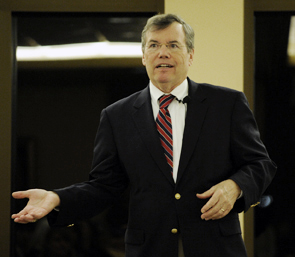 RCC President & CEO, Dr. Robert K. Musil, a national leader in climate change, environmental justice and health is available to book for in-person campus speaking events! Musil has been called “informative, challenging and inspirational all at once.” He is “motivational” with “intellectual depth” and “extraordinary impact.” RCC President & CEO, Dr. Robert K. Musil, a national leader in climate change, environmental justice and health is available to book for in-person campus speaking events! Musil has been called “informative, challenging and inspirational all at once.” He is “motivational” with “intellectual depth” and “extraordinary impact.”
Dr. Musil offers compelling campus lectures and visits involving classes, meetings with campus and community groups, consultations with faculty and administrators, or for Earth Day, Commencement, and other special events. Stays range from one to three days. Reduced fees are in place for 2025-2026 and can be designed to meet reduced budgets. To arrange a campus visit with Dr. Musil, contact the RCC President’s Office at bmusil1@yahoo.com The RCC also offers talks, classes, and workshops on student engagement, activism, sustainability, and the RCC Fellowship program with: Director of Communications, Claudia Steiner; Director of Campus and Civic Engagement, Diego Tovar; and Director of Policy and Strategic Development, Joy Reeves. To arrange, contact Director of Campus and Civic Engagement, Diego Tovar. | | | | | | The May issue of RCC's Campus Dispatch was produced by Ross Feldner | | | |  Sign Up Here to Receive the RCC E-News and Other RCC Newsletters, Information and Alerts. Sign Up Here to Receive the RCC E-News and Other RCC Newsletters, Information and Alerts. | | | | | | | | | | | |